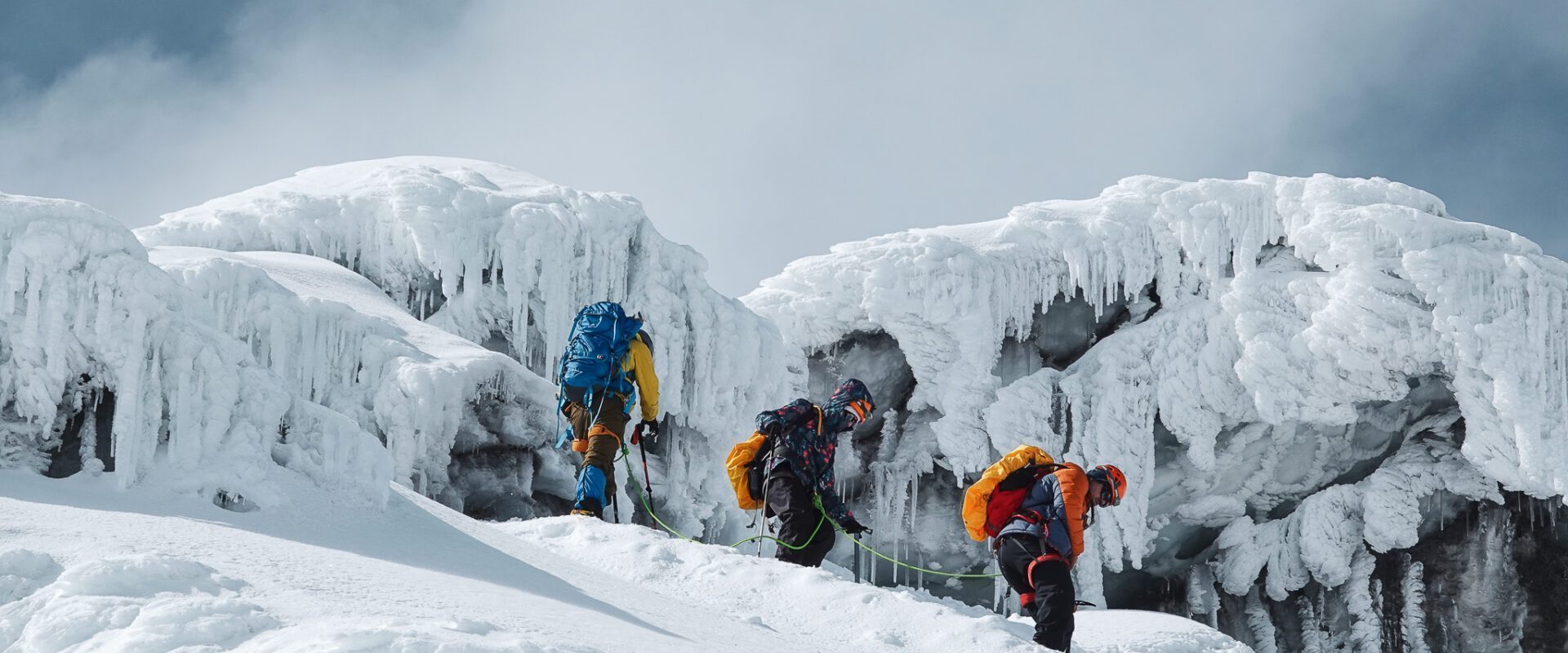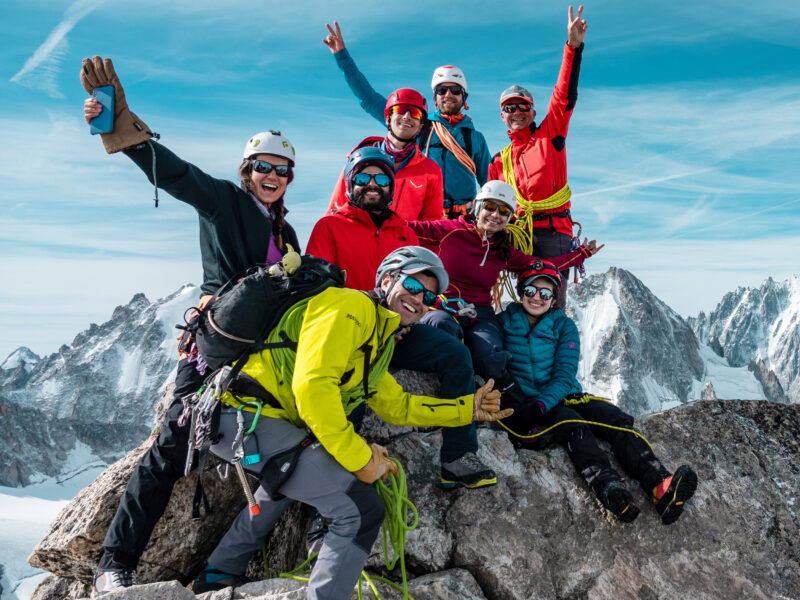BY Hazem El Shamy | August 15 2025
Top 10 Tips for Climbing Chimborazo and Cotopaxi

Climbing Ecuador’s two most famous peaks—Chimborazo and Cotopaxi—is a mountaineering experience unlike any other in South America. With their dramatic glaciated slopes and towering summits, both demand preparation, patience, and a healthy respect for the conditions. Here are ten tips to help you get ready for the challenge.
1. Start with Acclimatisation
Both peaks rise well above 5,000 metres, so altitude is your biggest hurdle. Spend at least a week at moderate elevation, climbing smaller mountains in Ecuador such as Rucu Pichincha or Illiniza Norte before heading higher.
2. Train for Endurance, Not Just Strength
These climbs involve long summit pushes—often 8 to 12 hours on summit day—so focus your training on sustained cardio and uphill hiking with weight, rather than short bursts of power.
3. Learn Glacier Travel Skills
Both routes cross glaciers, meaning you’ll need to be comfortable using crampons, wielding an ice axe, and moving roped together. If you’ve never done this before, take a short mountaineering course before you arrive.
4. Choose the Right Season
The climbing seasons in Ecuador are typically December to February and June to August, when weather is more stable. That said, conditions can change quickly at these altitudes.
5. Hire a Certified Local Guide
Even experienced climbers often hire Ecuadorian guides. They know the safest routes, current conditions, and how to navigate the glaciers in the dark.
6. Layer Up
Summit mornings are cold and windy, with temperatures well below freezing. Bring a layering system that keeps you warm without overheating during the climb.
7. Master the Slow Pace
At high altitude, moving too quickly can ruin your chances of summiting. Your guide will likely set a “pole-pole” (slow-slow) pace—stick with it, even if it feels too slow at first.
8. Prepare for the Midnight Start
Most summit pushes start around midnight, so you’re reaching the top around sunrise, when conditions are safest. Practise hiking at night in your gear to get used to the rhythm.
9. Respect the Mountain’s Limits
On both Chimborazo and Cotopaxi, weather and glacier conditions can turn you back. Remember that retreating is sometimes the smartest and safest choice.
10. Soak in the Experience
These peaks aren’t just about summits—they’re about the moments along the way: the crunch of crampons on ice, the first light hitting the Andes, the shared challenge with your climbing team.
Final Thoughts
Climbing Chimborazo and Cotopaxi is not simply about ticking off high points on a map. It is about stepping into the thin air of the Andes and testing yourself in a raw, beautiful environment. The preparation is as much a part of the journey as the summit itself. Go with respect for the mountains, gratitude for the team around you, and an openness to whatever the experience delivers. Sometimes the most unforgettable moments happen long before or after the summit.
About The Author
Hazem is an avid high altitude mountaineer and adventurer that has helped lead hundreds of climbers to summits across the Himalayas, Andes, Atlas, and Caucus mountain ranges. He believes that inspiration is best served on a sharp ridge 6000 meters up in the sky, and is committed to making big mountain goals more achievable to the everyday climber.
About Life Happens Outdoors
At Life Happens Outdoors, we believe in the power of nature to transform lives. As proud members of the Adventure Travel Trade Association (ATTA) and the World Travel & Tourism Council (WTTC), our team of certified guides and outdoor professionals is committed to the highest standards of safety, sustainability, and excellence.
Discover more about our story and mission on our Meet LHO page, or explore our curated adventures such as the Tour du Mont Blanc Trek, the Climb of Kilimanjaro, and Chasing the Northern Lights.















